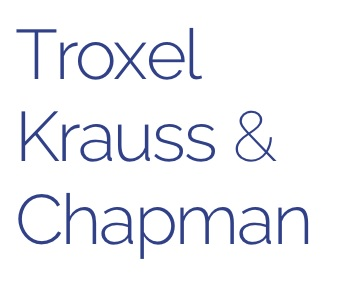Procurement Fraud
Procurement fraud occurs when a private contractor overbills the government, neglects an obligation or causes a loss by delivering defective goods or services. Whistleblowers who come forward to report these unlawful practices help both the federal authorities and the taxpayers receive what they paid for.
Procurement Fraud Overview
Government contracts are controlled by several laws and regulations designed to ensure that the products or services provided by companies meet a minimum quality standard. Laws like the Truth in Negotiations Act require that the bidding process is free of manipulation and that the final price is fair and reasonable.
There are many types of procurement fraud: billing for services never provided, lying about a company’s qualifications or experience to win a bid, providing defective supplies or failing to test a product. Any instance where the federal authorities government does not receive what they paid for or paid more for a contract because of rigged bidding may be a procurement scheme.
Forgeries and alterations of documents or the creation of fake documents may be the evidence of a potentially illegal practice. Irregularities in electronic accounting data such as unusual patterns in payments, a large number of smaller invoices to the same vendor or paid without supporting receipts are also red flags.

The Social Cost of Cheating the Government
Each year, private corporations, known as government vendors, receive contracts worth over $450 billion. Because of bribery and kickbacks, taxpayers are often left with the burden of overpaying for inefficient government contracts, such as the infamous instance of $7,600 coffee makers and $435 hammers sold to the U.S. Navy. Some cases of procurement fraud have had deadly consequences, such as in cases of defense contractors where soldiers receive defective weapons or inefficient body armor.
It is estimated that these unlawful scams account for up to 6% of all federal money spent on private contracts, costing American taxpayers as much as $42 billion every year. Thanks to efforts of many brave whistleblowers over the past five years, False Claims Act cases of this type have recovered over $4 billion for the U.S. Treasury, with settlements totaling $1.1 billion in 2015 alone.
Types of Procurement Fraud
Kickbacks / Bribery
Paying kickbacks in exchange for preferential bidding treatment. In addition to direct cash or non‐monetary payments, bribes may be also paid through inflated invoices or invoices for goods or services never delivered (duplicate payments)
Bid rigging
Multiple bidders agree to manipulate the government procurement process by colluding with each other. Bidders may rotate who bids on contracts, intentionally increase the prices, or participate in other anti‐competitive practices.
Defective products and Substitution of items
Unscrupulous business may end up delivering goods to federal agencies or the military that are not made to the specifications required by the initial contract, are unsafe, unreliable or otherwise faulty. Other times the items delivered are of an inferior quality than those required under the agreement.
Fake invoices
Creating fake invoices for services or parts that were never used or delivered and charging them to the government.
Conflict of interest
Failing to disclose a personal interest in the contract or the work that will be completed.
Phantom vendors
Nonexistent vendors are created and paid as sub‐contractors for work that is never performed.
Asset misappropriation
Contractors intentionally send an incomplete order while billing as it was completed.
Splitting
In order to avoid the threshold at which the goods or services procurement must go through a competitive bidding process, the order is split into multiple purchases. The total amount of these smaller purchases exceeds the bid threshold, creating a loophole that can be fraudulently exploited.
Fraudulent Statements
Fraudulent statements made during the bidding process can result in a company receiving a contract that it does not have the resources or experience to fulfill. These false claims include misrepresenting its revenue to appear larger (fake revenues); failing to disclose its complete history of legal or regulatory issues (improper disclosures); and lying about lie about its qualifications, experience or abilities to increase competitivity (overstated credentials).
Notable Procurement Fraud Cases
Reporting Procurement Fraud
The best people to identify these fraudulent behaviors are internal auditors, company examiners, and the employees working in bidding, contracting, purchasing, program management, payroll, accounting, and contractor occupations. Illegal practices of this kind can be reported under the U.S. False Claims Act, which provides whistleblower protections and rewards ranging between 15% and 30% of the total amount recovered by the government.
We can provide you with a free, hour-long legal consultation. Contact one of our lawyers by filling out a form or calling toll-free at 1-800-681-3228.

Photo Source: U.S. Army Corps of Engineers Sacramento District

